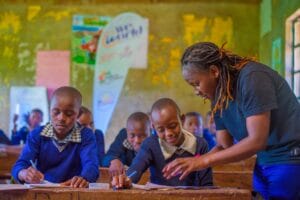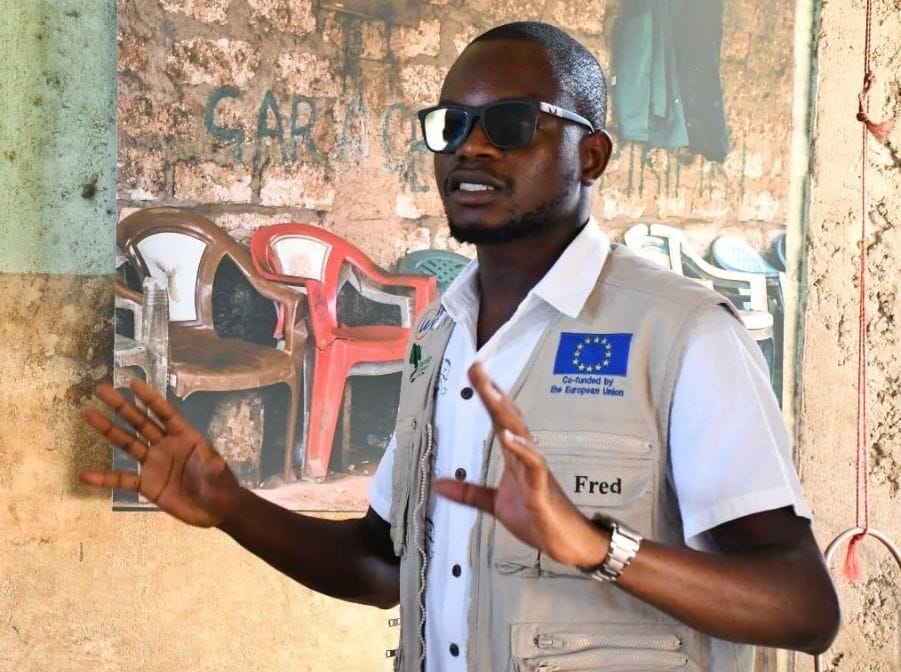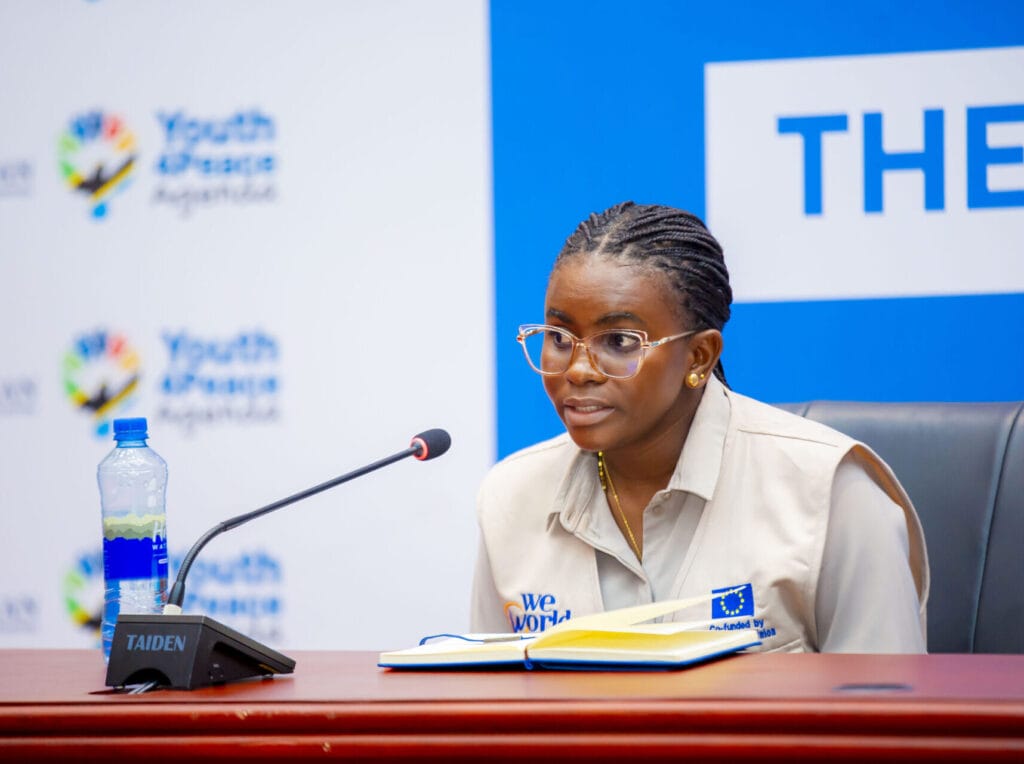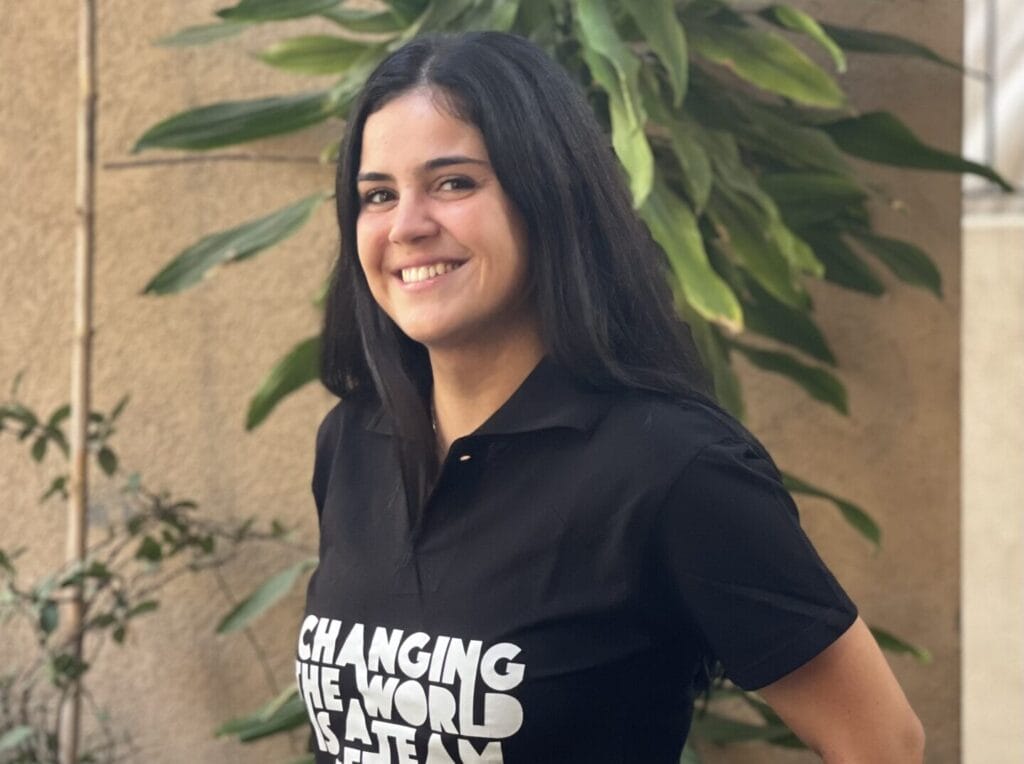
WeWorld will participate in the Second EU Conference on Youth, Peace and Security (YPS) and YPS Week, taking place in Brussels from 10 to 14 November 2025. The event, organised by the EU YPS Coalition and Team Europe partners, marks ten years since the adoption of UN Security Council Resolution 2250, the landmark resolution that recognised young people as key partners in peacebuilding and sustainable development.
Our commitment to promote youth participation and peace
For us, this anniversary is not just a moment of celebration, but a reminder of the commitment that guides our daily work: empowering young people as agents of change within humanitarian, development and peacebuilding interventions. Promoting youth participation and activism is not a side activity, but it is a crucial component in building safer, fairer, and more resilient societies. That's why across the world our projects support young women and men who are shaping peace from the ground up: their voices and experiences will accompany us in Brussels, where young practitioners and decision-makers will gather to co-shape the future of Team Europe collaboration on YPS.
The voice of Anastasiia from Ukraine
One of these voices is that of Anastasiia, a young peacebuilder from the Ukrainian organisation STAN, who will participate in the conference in partnership with WeWorld.
“For young Ukrainians today peace primarily means the physical end of Russia’s armed invasion: the restoration of people’s basic right to live, to sleep without sirens, to study without air raids, to plan for the future. But in a broader sense, peace is more than the absence of war. It is a state of social and inner balance, where there is room for justice, solidarity, and trust among people. It means the restoration of respect for human life, the ability for young people to grow and develop. Peace is a shared responsibility.”
Anastasiia describes how Ukrainian youth have become a driving force for positive change: during the war they became volunteers, coordinators of humanitarian aid, and initiators of educational, cultural, and media projects. Through civic initiatives like STAN, youth are fostering interregional solidarity, creating safe spaces for dialogue, and supporting internally displaced people, helping to rebuild trust and empathy in a time of deep uncertainty.
Her reflection captures a truth that resonates also across WeWorld’s programmes in Ukraine and around the world: peace begins locally, in relationships and everyday acts of care.
“Peacebuilding begins with local initiatives — with spaces where people start to listen to one another, appreciate differences as a value, and see cooperation as the key to the future. Such activities lay the foundation for social cohesion and community resilience, even in the most difficult times.”

WeWorld’s voices on peacebuilding
This same, locally led participation lens also guides WeWorld’s work across the coastal areas of Kenya, Tanzania, and Mozambique through the EU-co-funded Kujenga Amani Pamoja project. This regional initiative strengthens youth participation in peace and security structures, ensuring that young people are not just consulted but are meaningfully engaged in community-level peacebuilding processes.
In Kwale County, Fred Odera, WeWorld Project Coordinator in Kenya, explains that despite resistance by the older generation, young people there are now taking leadership roles in community peace committees. Trained youth champions have helped reconcile rival groups through dialogue and even organised peace football matches in Kwale that turned old rivalries into friendships. Creative initiatives such as Photovoice, a participatory photography activity held in the three countries of the project, have challenged stereotypes and amplified women’s roles in peacebuilding, inspiring more young women to join community dialogues and leadership spaces.
Across the border in Tanzania’s Mtwara region, Veronica, WeWorld Project Coordinator in the Country, shares how young people are using sports, arts, and social media to promote coexistence and challenge discrimination.
“Young people in my country play a vital role in driving positive change and promoting peace. They engage in community dialogues, awareness campaigns, and volunteer activities that encourage tolerance, unity, and respect.”
Through the project, youth ambassadors have been recognised by local authorities to official ward peace committees after demonstrating their capacity to mediate conflicts and educate their communities. Their stories show how, when equipped with the right skills and opportunities, young people become catalysts for inclusion, bridging generations and communities that once stood apart.
In Lebanon, WeWorld’s key initiative Power of Youth: Unlocking Potential for Inter- and Intra-Communal Conflict Prevention in Lebanon, is fully dedicated to supporting young people, empowering them as active agents of social cohesion, peacebuilding and conflict prevention. Through the EU-funded project, young people from Lebanese, Syrian, Palestinian, and migrant communities are trained, supported, and funded to design their own initiatives for dialogue and coexistence. As the Project Coordinator Valeria Ongaro says, some have turned research into advocacy, collaborating with universities to analyse local tensions and propose solutions. Others have used creative tools like storytelling and visual art (such as a graphic novel co-created by youth from different backgrounds) to challenge stereotypes and promote mutual understanding. These experiences show how participation, partnership, and prevention come together when young people are trusted to lead.
Youth as a key of rebuilding peace
Joining YPS Week in Brussels, we reaffirms our commitment to advancing the YPS agenda through practice. Our approach combines humanitarian action, development programming, and peacebuilding to address the root causes of vulnerability and exclusion, ensuring that young people are not just beneficiaries of aid, but co-creators of change.
Ten years after Resolution 2250, the YPS agenda remains a call to action: to listen, to trust, and to act together. At WeWorld, we believe that when young people are given space, resources, and recognition, they don’t just imagine peace but they are key to build it, one community at a time.






